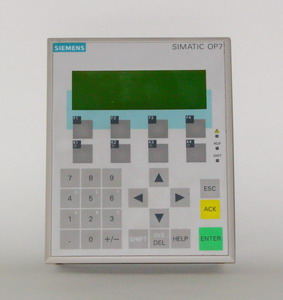
SIEMENS 6AV3607-1JC20-0AX2
آبان 23, 1401
SIEMENS 6SE7012-0TP50
آبان 23, 1401By counting their blessings and appreciating small wins, individuals can reshape their narratives and develop a hopeful outlook for the future. This practice not only helps cement recovery but also empowers individuals to embrace a more fulfilling life, leaving the shadows of addiction behind. Moreover, gratitude fosters resilience and motivation, making it easier to navigate the rollercoaster of recovery. Recognizing and appreciating the support from others strengthens relationships within the recovery community, fostering a sense of connectedness that is invaluable. By feeling grateful for their sobriety Oxford House and the opportunities it brings, individuals are more likely to stay committed to their recovery goals. Gratitude plays a crucial role in addiction recovery by providing essential mental and physical health benefits.
The Role of Gratitude in Long-Term Sobriety
Thank yourself for showing up each day to try again, to grow, to face challenges, and to work on being the best version of yourself. Often, those in recovery forget to show gratitude to themselves for all they have overcome and accomplished. One way is to begin journaling about the things in your life that you are grateful for right now.

How Pets Can Provide Emotional Support in Sobriety
This reflective practice helped her focus on positives rather than the void left by addiction. Aside from the positive energy it brings, gratitude in addiction recovery helps us to focus on the present moment and its blessings. We don’t want to dwell on the past and its mistakes, or the future and its unknown. This mindfulness helps us deal with stress, anxiety, and cravings in a healthy https://plaestrategic.cat/advances-in-relationship-between-alcohol/ way. Mindful gratitude involves being fully present and aware of what’s happening around you.

Keep a Gratitude Journal.
It’s a journal or diary that you use to record things you’re grateful for and have a dialogue with yourself throughout recovery and beyond. For the best results, you should write in your journal regularly, every day if possible. This way, it becomes part of your routine and provides a time of quiet mindfulness during your busy days. The key to practicing gratitude in your daily life, especially during SUD recovery, is being intentional about the time you spend reflecting. It’s easy to say that you are grateful for the things you have, but the healing effects of gratitude come from intentional reflection.
How Gratitude Benefits Mental Health and Brain Function
Overall, overcoming these challenges through mindfulness, reflection, acts of kindness, and social support can transform resilience into lasting gratitude, significantly benefitting recovery. Journaling has a long-established history as a tool for self-discovery and healing. Journal therapy is a part of many kinds of counseling and group work, but anyone can use a journal to explore feelings, process events, and create conditions for change.
- Sharing gratitude with friends, family, or support groups can deepen connections and provide additional motivation.
- Most 12-Step plans, which are tried-and-true approaches to sustained sobriety, include gratitude and forgiveness practices in one or more of the steps.
- Guided meditations focusing on appreciation can deepen feelings of thankfulness and promote emotional regulation.
- The cycle of addiction is often fueled by feelings of shame, guilt, hopelessness, and a pervasive sense of lack.
Mindfulness practices such as meditation, mindful walking, and mindful eating are also instrumental. Guided meditations focusing on gratitude, sensory awareness exercises during walks, or savoring each bite during meals help individuals stay present and connect with their inner feelings. Another simple exercise is writing thank-you notes to individuals who have supported you or made a difference in your journey. This act not only expresses appreciation but also strengthens social bonds, which are crucial during recovery. Regular mindfulness exercises strengthen the ability to understand internal experiences, such as feelings of anxiety, anger, or shame, and respond with compassion instead of suppression or avoidance.
Recognizing these feelings as transient thoughts and sensations enables healthier choices and reduces impulsivity. Another effective technique is the body scan, which encourages a person to systematically observe physical sensations throughout their body, from head to toe. This helps develop a deeper awareness of bodily states, allowing individuals to recognize early signs of emotional or physical stress, and respond with acceptance rather than reaction. Chances are if you have been in recovery for more than a day or two, you have heard someone talk about gratitude. As a core principle of many recovery programs, the word gratitude gets thrown around a lot. Interestingly, expressing gratitude may also have benefits for those on the receiving end.
- Expressing thanks through acts of kindness or thank-you notes strengthens social bonds.
- For those in recovery, gratitude must become a central part of life to help them with sobriety, not just during the holidays.
- Moreover, gratitude strengthens interpersonal relationships by promoting empathy and fostering a sense of belonging.
Examples include “I am grateful for the progress I have made in my recovery journey” or “I appreciate my strength and determination to stay sober.” Additionally, integrating gratitude exercises into routine activities like during meals or before going to sleep can help rewire brain circuits related to happiness and stress reduction. These daily rituals reinforce positive thoughts and emotions, making gratitude a habitual part of one’s recovery journey. Writing gratitude letters or sharing appreciation with others deepens interpersonal connections.

Scientific Foundations Supporting Gratitude’s Role in Recovery
- Incorporating these practices into daily routines—such as starting each day with gratitude journaling or mindful breathing exercises—can build a resilient mindset.
- It allows individuals to acknowledge their journey, including the struggles and lessons learned from their past, which is crucial for self-forgiveness and emotional healing.
- When gratitude becomes a routine, it supports ongoing emotional healing and reinforces social connections through acts of appreciation and generosity.
- Keep going to AA, NA or other support meetings; keep reading the Big Book or other sources of perennial wisdom and keep on the road to happiness.
- Research indicates that gratitude enhances mental health by reducing stress, anxiety, and depression.
For people working on recovery from substance abuse, cultivating the proverbial “attitude of gratitude” can boost the success of all aspects of a recovery plan. For these reasons, seeing life through the lens of gratitude can also help to prevent relapses. Incorporating these Four A’s into daily life can enhance overall gratitude and recovery well-being, bolster resilience, and empower individuals to focus on the positives in their recovery journey.


